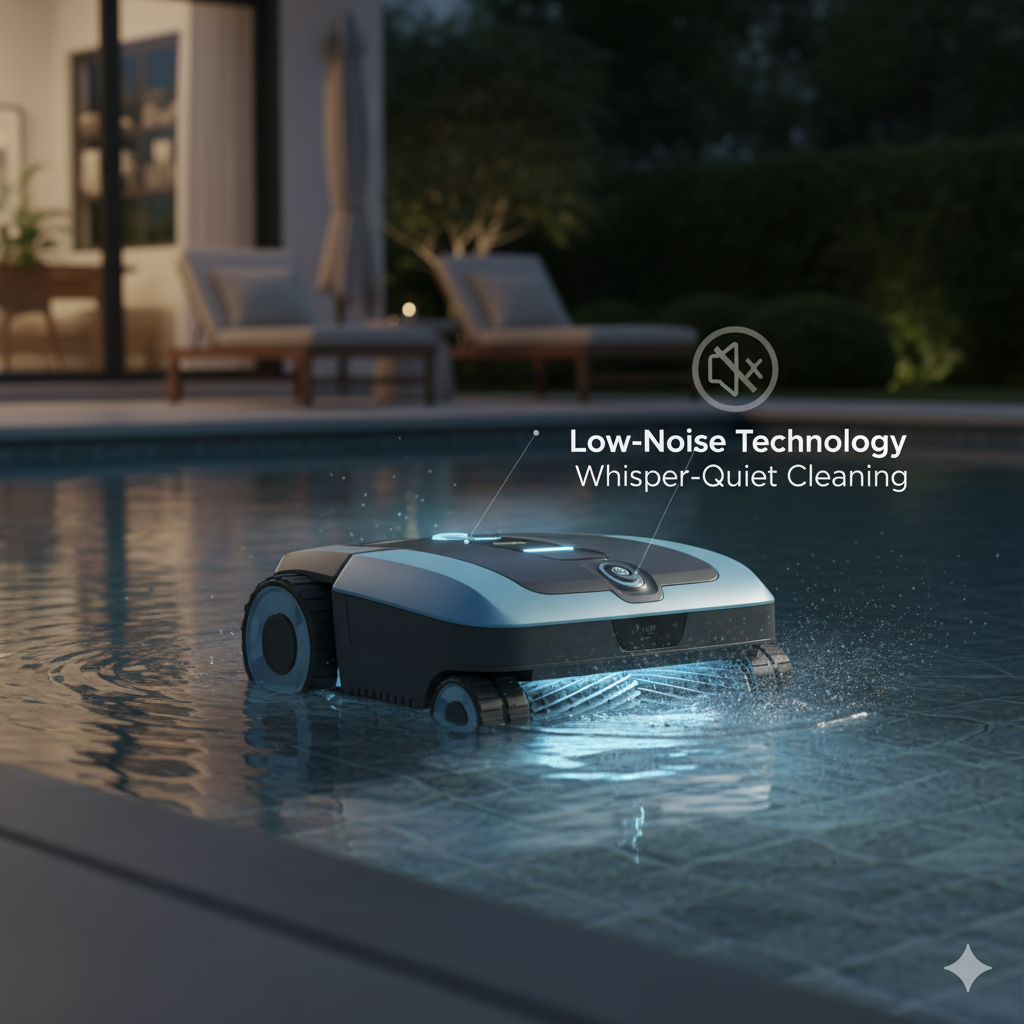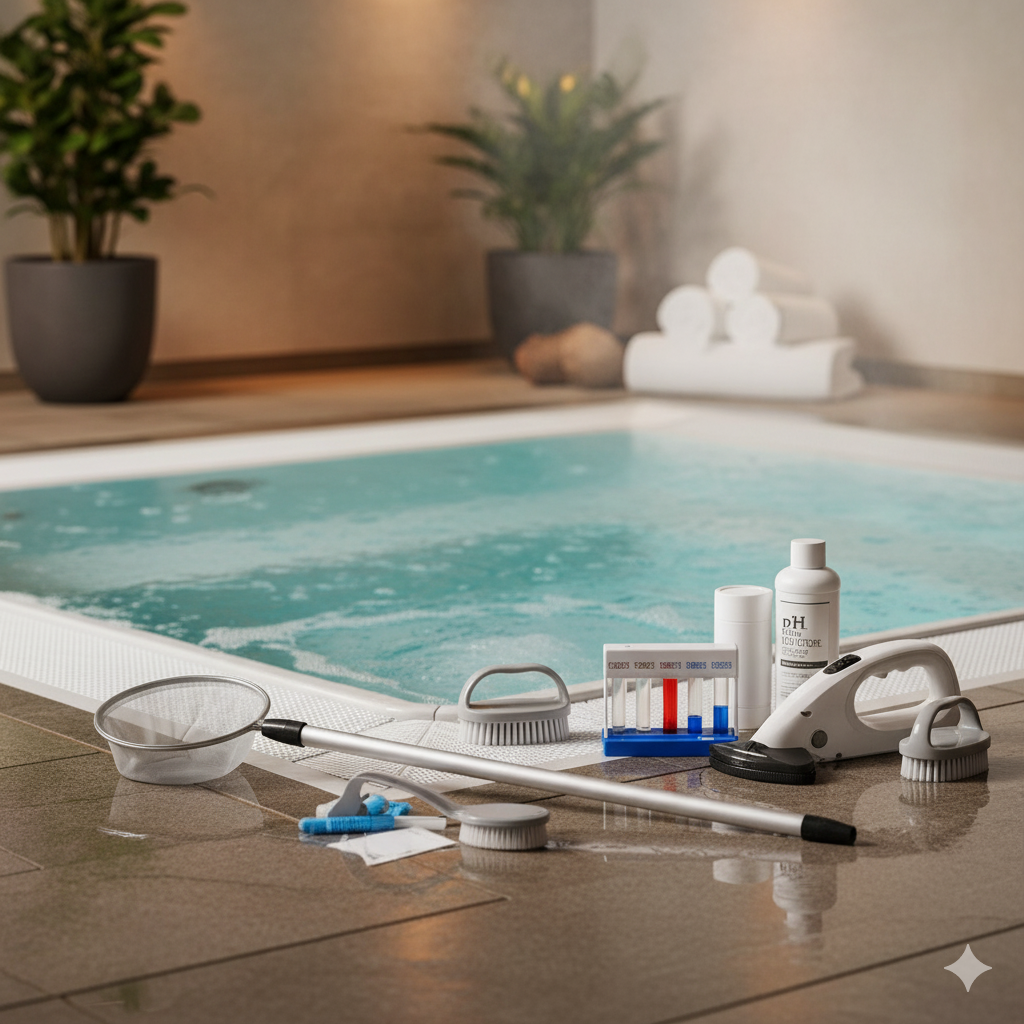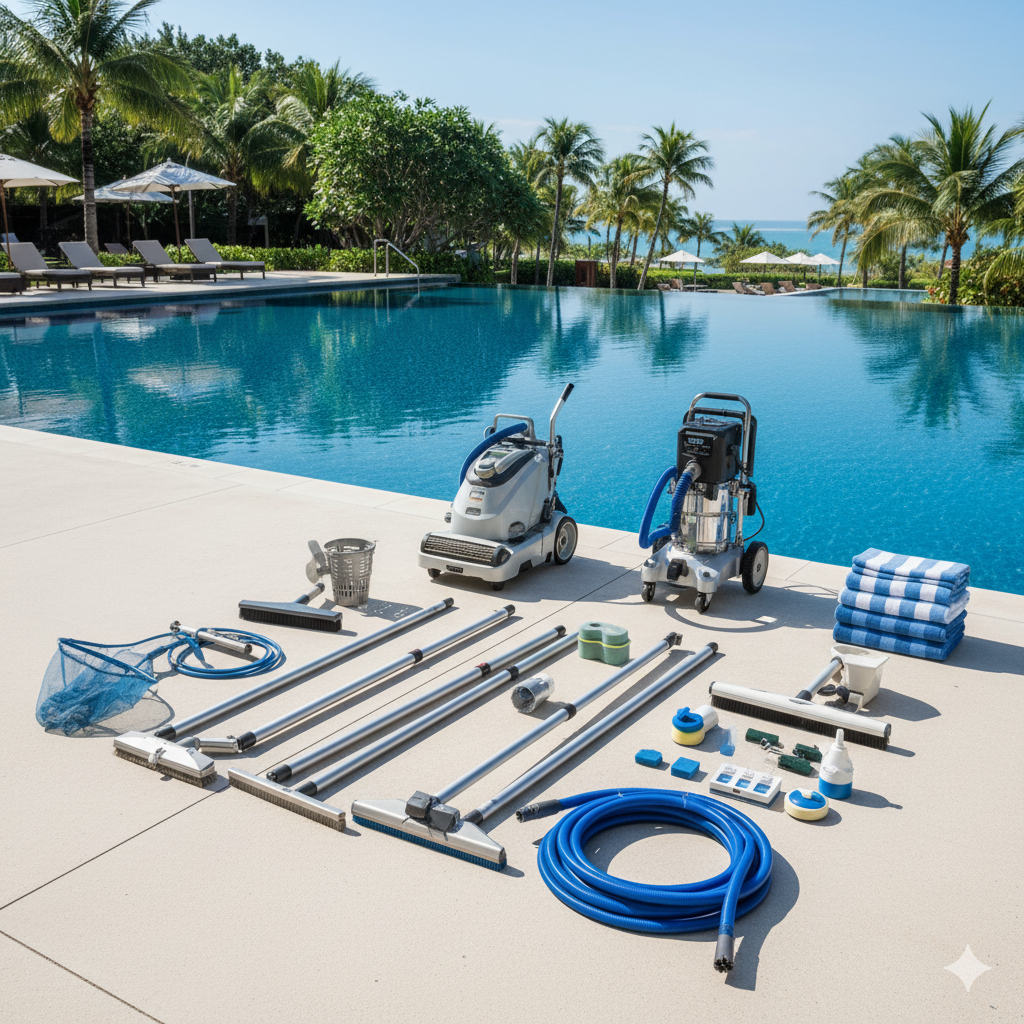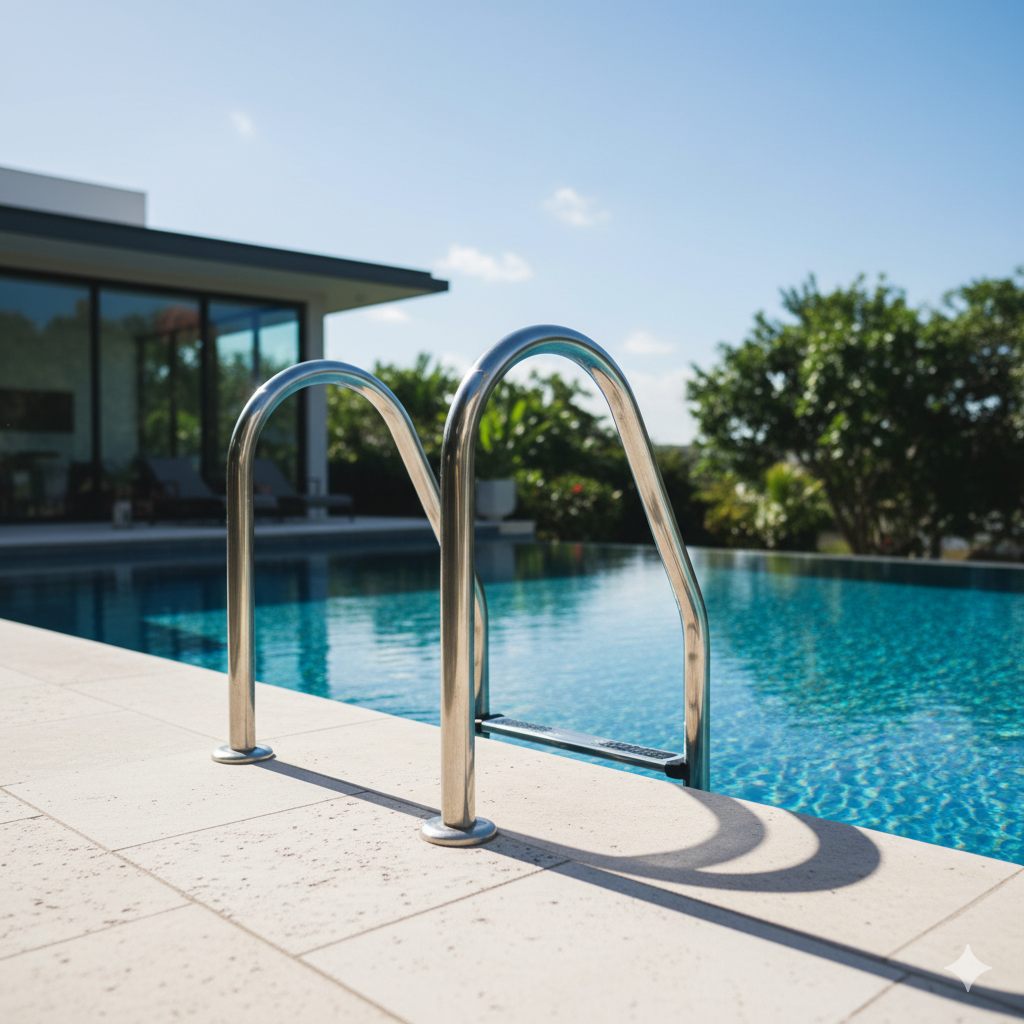
Low Noise Pool Cleaner: Quiet Performance for Modern Pool Environments
A quiet pool environment is more than a luxury — it’s part of the guest experience. In hotels, spas, and residential complexes, noise from cleaning systems can disturb relaxation or disrupt scheduled operations.
That’s why low noise pool cleaners are now becoming the preferred standard for both private owners and commercial facility managers. The design goes beyond aesthetics; it reflects an evolution in mechanical balance, suction control, and energy efficiency.
How Noise Reduction Works in Modern Pool Cleaners
Noise mainly comes from motor vibration, water turbulence, and gear friction.
To minimize these sources, leading manufacturers like Bonny adopt three core design improvements:
-
Optimized motor housing — rubber-insulated compartments absorb vibration.
-
Flow-balanced suction heads — streamlined channels reduce cavitation noise in water.
-
Precision drive systems — sealed bearings eliminate the mechanical “grinding” typical in traditional cleaners.
Combined, these adjustments can reduce decibel levels by up to 40 %, allowing cleaning operations even during spa hours or early mornings.
Why Quiet Operation Matters in Pool Management
For high-end facilities, sound levels influence customer perception as much as water clarity.
-
Hotels & Resorts – Early-morning cleaning can be done without disturbing guests near pool suites.
-
Wellness & Spa Centers – Quiet systems maintain the tranquil ambiance that defines brand identity.
-
Residential Areas – Lower sound means cleaners can run at night, taking advantage of off-peak electricity.
In each case, low-noise designs improve operational flexibility — no more waiting until the pool closes to begin maintenance.
Product Design Elements Behind Silent Cleaning
| Component | Traditional Cleaner | Low-Noise Cleaner |
|---|---|---|
| Motor Type | Open-frame, air-vented | Fully sealed, sound-absorbed DC motor |
| Wheel & Track System | Plastic gears | Rubberized traction wheels for shock absorption |
| Flow Channel | Straight suction path | Hydrodynamic curve reduces turbulence |
| Operation Sound | 70–75 dB | 50–55 dB average |
| Energy Use | High RPM draw | Controlled torque, 20 % less consumption |
The quietness isn’t achieved by lowering power; it’s about energy direction — converting mechanical energy into flow efficiency rather than vibration.
Applications and User Benefits
-
Extended Operating Hours — Clean anytime without noise complaints.
-
Reduced Energy Waste — Lower friction = less load on motors.
-
Maintenance Longevity — Fewer vibrations mean less wear on joints and seals.
-
User Comfort — Quiet tools integrate seamlessly into spa and resort operations.
The result is a professional-grade cleaning experience that keeps water pristine while maintaining the calm atmosphere expected in modern leisure environments.
Selecting a Reliable Low-Noise Pool Cleaner
When purchasing or upgrading cleaning systems, focus on:
-
Noise rating below 60 dB under full suction.
-
Sealed motor design with heat dissipation coating.
-
Stable track drive for large pools or irregular surfaces.
-
Compatibility with both manual and automated filtration systems.
-
After-sales support for motor replacement and gasket servicing.
Partnering with a manufacturer who specializes in low-noise pool equipment ensures consistent performance and long-term reliability across installations.
Conclusion: Quiet Efficiency, Trusted Durability
A truly modern pool cleaner should disappear into the background — working powerfully yet silently.
Bonny’s line of low noise pool cleaners embodies this principle, delivering strong suction with minimal sound and energy use.
Designed for hotels, spas, and residential facilities, these systems help maintain water clarity without breaking the tranquility that guests expect.
To learn more about Bonny’s low-noise and energy-efficient cleaning solutions, visit our homepage or contact us here.






